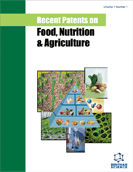Abstract
In the humid tropics, on the edges of the Amazon forest, the technological challenges to establishing and maintaining productive and sustainable agricultural systems have yet to be overcome. The groups involved in agriculture in the north of Brazil still engage in the practice of slash and burn in order to prepare and fertilize the soil. This produces negative effects for the local and global environment, without the counter-effect of providing social benefits to rural communities. Whether this process continues is of fundamental importance to many countries because it means that slash and burn agriculture is advancing on the Amazon rainforest, with a negative effect on every dimension of national policy. Beyond social political problems the biggest challenge for researchers in the field of tropical agriculture is to offer technological alternatives that can sustain agriculture in soils derived from sedimentary rocks that have been subjected to a high degree of weathering. In this article patented information is also discussed. Experiments undertaken in this region recommend taking advantage of the rapid growth of plants in the tropics. We aimed at proposing a suitable alternative system for a sustainable soil management in the particular conditions of humid tropics, named as “no-till in alley cropping using tree leguminous mulch.” This system offers the advantages of: bringing together, in the same space and at the same time, the processes of cultivation and the regeneration of soil fertility.
Keywords: Humid tropics, agroecology, soil cover, nutrient recycling
 3
3



















